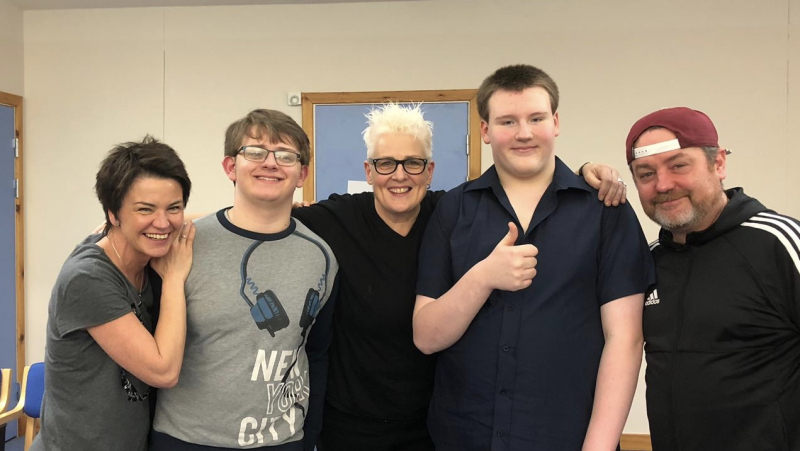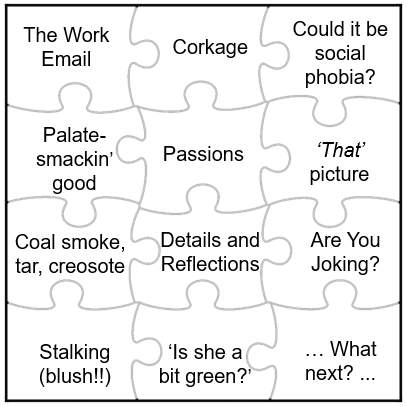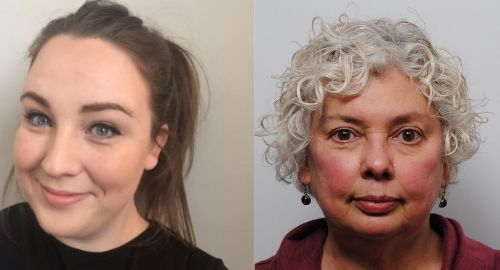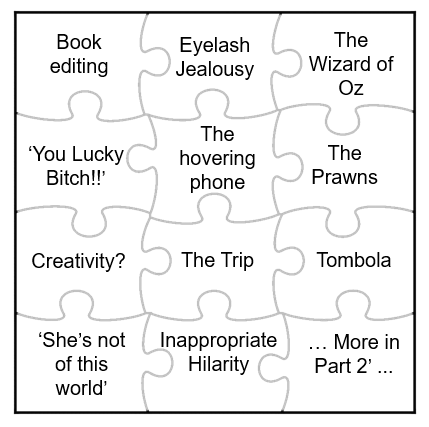Making Music at New Struan School
Joseph Long, Research Manager, Scottish Autism
An Interview with Jack Tidy (second left) and Jason Davidson (second right)
Students from Scottish Autism’s New Struan School recently had the opportunity to undertake a music workshop with renowned singer and songwriter Horse McDonald. The workshops were organised by Nordoff Robbins Scotland, who run music therapy sessions with students at New Struan. Jack and Jason had the chance to collaborate on composition, performing and recording with Horse. Here, in an interview with Share, they talk about their experiences making music.
Joe: What is your favourite type of Music?
Jason: Personally I’d have to say hip-hop. I don’t really know why, I just like it. I don’t really have any emotional connection to it, I just listen to it casually. Then I started producing it.
Jack: I like to listen to dance, electronic and house music. I originally started liking alternative music back when I was 3 or 4 or even 2 and then I sort of started liking classical music by the age of 13, and then I started liking dance music. I like alternative because it introduced me to what music is, then I liked classical because it showed me how music started. Now I really like Electronic Dance Music because it makes me think happy thoughts and good times instead of looking at the bad side of myself.
Joe: How do you like to make music?
Jack: I play a keyboard and I make music on a laptop in my house. I put keys from the keyboard onto the laptop to make music. It’s about placing the notes perfectly.
Jason: Basically what I do is I get a melody or make a loop, then I put drums to it using a programme. I just taught myself.
Joe: Tell us about music therapy sessions at New Struan School and what you gained from them.
Jack: It wasn’t about if you get a note wrong, it was more about your emotions. It doesn’t matter if you make a mistake or not − it’s your music and you can do whatever you want with the music to make you feel happy. The benefits of music therapy has been to make more music and even collaborating with Jason.
Jason: It also helps you emotionally.
Jack: It just makes me happy, it makes me feel better. It makes me, as I’ve said a hundred times, the person I am today.
Joe: How did the collaboration with Horse McDonald happen?
Jason: Janet, the Music Therapy teacher, told me that we were working with an artist. I wanted to get into a studio and do some stuff. She said ‘you guys should get someone professional in’, then we ended up with Horse. After that me, Horse and Jack started working together. She came in and did a wee live performance of her song ‘Careful’. When I looked on her Wikipedia page I thought “Whoa, she’s famous!’ It took a couple of days to settle in that I was working with Horse, but she’s really nice in real life.
Jack: When I was introduced I was, like ‘She’s really good!’ I could make music with her and so can Jason.
Joe: What did you do in the workshop sessions?
Jason: We did two different songs. While they were making a melody and song I was with Andy, the producer, trying to produce a track. I had a melody in my head from years ago and before you know it we had a whole track created. Jack helped out on my track.
Jack: I did the vocals.
Jason: We all wrote the lyrics together.
Jack: Working with Horse was really good because when I was writing lyrics she would come in and say ‘those lyrics are really good, but we can change some of them so that it can fit with the song’. It worked really well. She even heard my keyboard playing and thought ‘he wrote those chords all by himself with no help at all!’ and she was just baffled, but in a good way.
Joe: What did you learn from working with Horse?
Jack: I learned that it’s not that easy, making music, but as days wore on I got more confident, even releasing them on Soundcloud.
Jason: It spurred me even more to do more music, because at that time I was just toying around with it. I put my music on Spotify as well as other platforms. I’ve got three albums out.
Joe: Could you sum up what you gained from the sessions?
Jason: On a family level, they’re very proud of me but on a personal level, I feel it’s really cool: I’ve learned to push my music forward, always push myself. Always be at the top of your game, all the time. I’m a perfectionist in that kind of a way.
Jack: My parents are also proud of me, my friends as well. I take breaks from working on songs. I need the ideas and imagination to flow within me before I can work on a song. Sometimes it’s really difficult to work on a song but in the end, some of them actually do well.
Joe: Do you think there is anything that’s particularly important about music for autistic people?
Jack: I think music can help people with their emotions – their downs, their ups, everything that’s happened to them. It can show their true potential to everyone.
Jason. Think about non-verbal people. Someone may not have been able to speak their entire life but they could always communicate using the piano.
Joe: Is there anything else you would like readers of Share to know about your experiences making music?
Jason: Hopefully this has opened up many more opportunities for us. We’ve ended up on the BBC, we’re going to be on Stirling City Radio.
Jack: We’ve even been going to college on a Friday.
Jason: We do music and sound production at Forth Valley College.
Jack and Jason were talking to Joe Long.
You can hear Jack’s music on Soundcloud at:
https://soundcloud.com/user-90066340
Jason’s music is at:
https://soundcloud.com/asendo-music
A Music Therapist writes:
Mary Brown
Nordoff Robbins Scotland





